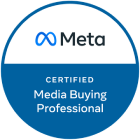Sections
Lead Quality: 5 Common Mistakes and How to Fix Them
Is anything more disappointing than an unqualified lead? A new lead comes in, and you get all excited—only to have your hopes dashed when you realize it is hopelessly, woefully unqualified. Maybe their budget is way out of line with your pricing, or they’re looking for a product you don’t even offer.
Whatever the cause, lead quality is a serious issue. Unqualified leads cost your business money, time, and effort.
If your brand is getting a lot of unqualified leads, don’t worry. You can stem the tide. Here are the five common mistakes that result in unqualified leads—and what you can do to stop making them.
1. You haven’t updated the default settings for Google Ads.
If your PPC campaigns are delivering unqualified leads, the culprit may have been in the first place you looked—and never looked at again. We’re talking about those screens you completed back when you initially set up your Google Ads account.
By default, Google’s settings target people who are interested in your product or service, no matter where they live. It’s up to you to narrow the pool to people located in your service area. If you’re a local business, updating this setting can be a major game-changer. Even if you sell online, it’s still worthwhile as you can filter out the countries or locations you don’t ship to.
2. You’re targeting the wrong keywords.
Want to know the big secret to better lead quality? It’s advertising to your target audience, not the whole world. When we come in and clean up our clients’ PPC accounts, there are three specific keyword issues we tackle first for a paid search quick win:
- We turn off broad match. Google’s default setting shows your ads to those who search for your target keyword, along with similar variations. This opens you up to bidding—and paying for clicks on—keywords that don’t have any purchase intent whatsoever, and leads who are in no way qualified for your business. For example, a cycling brand may rightly bid on “bicycle bell,” but they wouldn’t get qualified leads from the broad-match keyword “use bicycle bell.”
- We add negative keywords. On a similar tact, you can also add negative keywords to your PPC account. These tell Google explicitly which keywords you don’t want to rank for, so you avoid bringing in unqualified leads. For instance, a brand that exclusively sells bikini swimwear for women will want to add negative keywords like “men’s bathing suits,” or “women’s one piece swimsuit.”
- We remove keywords with low purchase intent. A keyword can be relevant to what you do and still result in unqualified leads, such as those who are still in the very early stages of educating themselves about your product or service. Ask yourself, “Is someone searching for this keyword likely to actually end up buying or purchasing from us?” If the answer is no, the keyword may not have good purchase intent. For example, “diy wheel alignment” has very low purchase intent for an auto repair shop, compared to “how much is wheel alignment.”

Do You Feel Like Your Leads Are Unqualified?
Your Marketing People’s Paid Search services will help you reach the right customers at the right time.
3. Your landing pages are too generic.
Keyword targeting doesn’t stop with the ad that gets a person to visit your site. You want to continue your targeted approach once they arrive as well. The copy on your landing page should be just as targeted as the keywords you bid on.
A generic landing page produces two common issues, both equally problematic:
- Your targeted PPC campaign may speak to a particular person with a specific need. But, when they arrive, the copy is so generic that they feel a disconnect and leave.
- If your landing page speaks to the entire universe of potential customers (even those who would be unqualified based on budget or their industry), you’ll get leads from verticals you don’t service or people who can’t afford your products.
Either way, a generic landing page is no friend to your lead funnel. At Your Marketing People, we recommend creating targeted campaigns—from the ad copy all the way to the landing page. This is the best method for setting up a focused campaign that produces a low CPC and high ROI.
4. Your lead forms aren’t doing their job.
Even with a superbly designed landing page—one that targets the precise keywords and personas you’re interested in—it’s possible for some unqualified leads to leak through. This is where a well-built lead form comes in.
The key to a smart lead form is finding the balance between asking as few questions as possible, while weeding out unqualified leads. Besides name, phone, and email, you might choose to ask a few (and no more than a few!) qualifying questions, such as the size of their business, the vertical they serve, or what their most pressing need is.
To prevent fatigue, each of these additional questions should allow the lead to select from a drop-down menu or check off a few boxes. Don’t risk turning off qualified leads by forcing them to fill out an essay.
5. You aren’t using UTM parameters.
When you’re getting a ton of unqualified leads and you don’t know where they’re coming from, trying to hunt down the solution can feel like finding the year’s “it” toy during a Black Friday sale. But, you can have somewhere to start with if you use UTM parameters to track the URLs for your campaigns.
These are free and easy to set up, thanks to Google’s tool. If you’re a HubSpot user, you can even set them up in your Marketing Hub. UTM parameters offer up to five fields that help you assign a URL to a specific campaign, channel (e.g. paid search vs. social), source (e.g. Facebook), and even particular keywords within a campaign.
Once you have your tracking URLs set up, you can view their performance in Google Analytics and in HubSpot. Beyond celebrating your successful campaigns, you can also use these to narrow in on which URLs are generating the most unqualified leads.
See if you can identify any patterns. Do they happen to come from a similar channel? Maybe you’ve accumulated a lot of spam followers, or you need to adjust your social strategy. Or, are a large number of unqualified leads associated with a particular campaign? Review your keywords and copy to see how you can better align them to what your qualified leads are looking for.
Improving Your Lead Quality
Unqualified leads are a common complaint among business owners getting started with online marketing. But you don’t need to resign yourself to a future of unqualified leads.
Let Your Marketing People help. We specialize in data-driven marketing campaigns that reduce spend and skyrocket ROI. With our expertise, you’ll reach the right customers, with the right offer, at the right time. Learn more about our paid search services.
Leave the Guesswork to the Experts
We’ll discover where your unqualified leads are coming from and build a strategy to generate more qualified leads, so you have more time to focus on the big picture.







